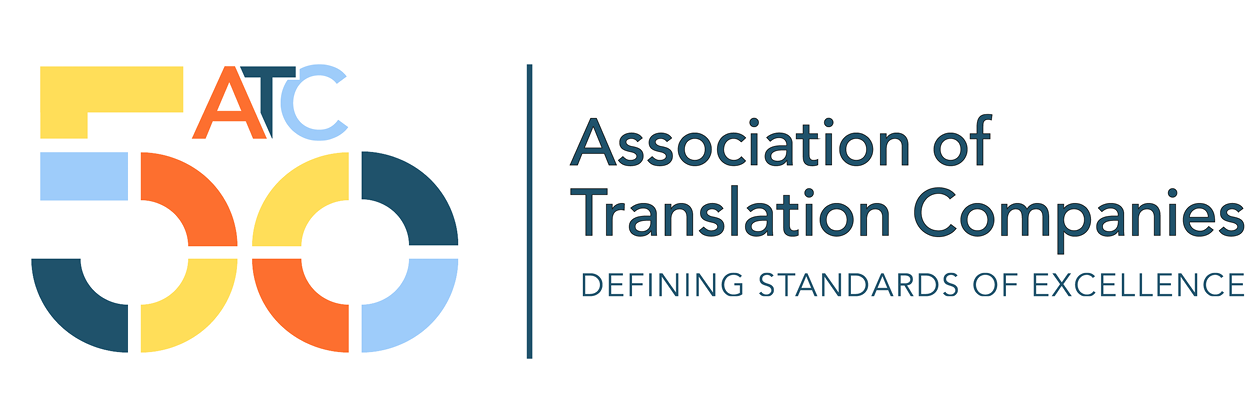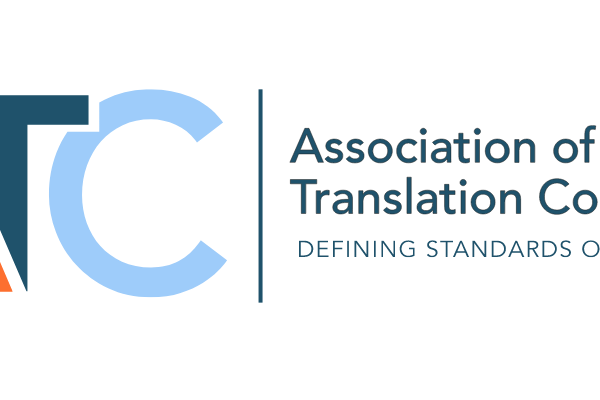To celebrate the ATC's 50th anniversary as trade association and community of language service companies,…

It is an uncertain, unprecedented time for the UK’s language services industry, and the Association of Translation Companies (ATC) welcomes the measures announced by the UK Government to support small and medium-sized businesses.
However, more needs to be done to offer robust support to the language service industry’s self-employed translators and interpreters during this time of crisis.
The ATC calls for robust financial coronavirus support measures to be extended to self-employed translators and interpreters, and for the official recognition of public sector interpreters as key workers.
The role of language services in the UK’s public sector
Language services play a critical role in enabling multilingual communication within all public services.
The UK’s 1,600 language service companies and its thousands of self-employed translators and interpreters carry out assignments in over 300 languages. They ensure the justice system, police and NHS, among all other civil services, have access to the information they need, when they need it, and in whichever language they need it.
Skilled and competent professional translators and interpreters all across the country apply their expertise to complex, challenging and sensitive assignments – now also putting themselves and their health at risk.
Without translation and interpreting, British public services including the NHS, justice system and police forces, would be unable to function.
Support for self-employed translators and interpreters
The majority of Britain’s translators and interpreters are self-employed, and the coronavirus pandemic creates an unprecedented threat to their livelihoods.
With no access to Statutory Sick Pay for time spent in self-isolation, translators and interpreters will also risk a significant loss of revenue through reduced commercial and public sector activity causing an immediate drop in assignments, with direct financial consequences.
Financial coronavirus support measures must be extended to the self-employed to the same measure as Britain’s employed.
Public sector interpreters as key workers
UK schools are now closed due to the pandemic to all but the children of key workers and vulnerable children.
Together with our public service stakeholders, the ATC calls on the Government for public sector interpreters to be universally recognised as key workers, to enable them to undertake critical interpreting assignments, safe in the knowledge that their children can continue to attend school.
Following the Government’s release of the key workers list, police interpreters have now been recognised as key workers by the Police National Lead for Language Services and the Met Police.
However, many more of Britain’s public services will require interpreting to facilitate timely, crucial multilingual communications – not least the health sector – in the weeks and months to come.
The ATC believes that public sector interpreters should be included within the definitions of “support and specialist staff required to maintain the UK’s health and social care sector” and “those essential to the running of the justice system”.
We understand that schools are liaising directly with parents on providing school provision to the children of key workers, and we urge all schools to accept the evidence provided by translators and interpreters as to their critical work in keeping Britain’s public services running.
About the ATC
The Association of Translation Companies (ATC) is a professional membership association representing language service companies in the UK and internationally. It is the leading voice for companies operating in the UK’s language services industry.
The ATC provides authoritative advice about matters relating to multilingual communication, and working with legislators and other stakeholders, lobbies on behalf of its members, promoting the value of language skills, translation and interpreting. The ATC is also at the forefront of the development of international standards for translation and interpreting.


